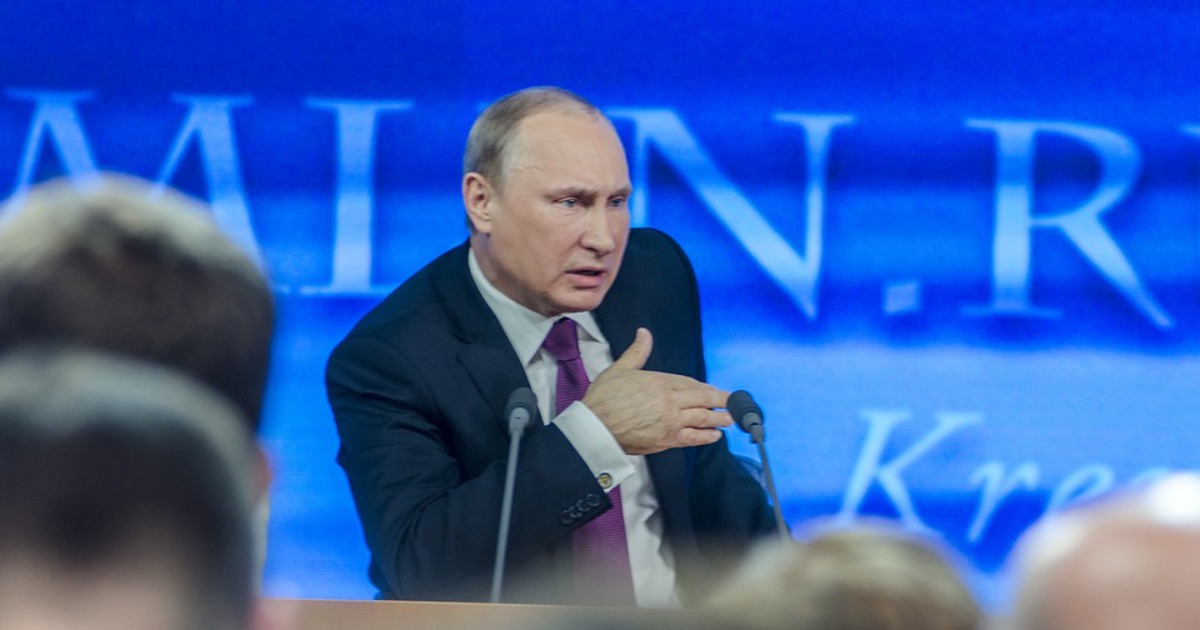Putin (Clumsily) Seeks to Exploit Gulf Tensions
Putin still has much to learn to make the most of the opportunities that arise from the United States’ strategic shifts and tactical fumbles.
September 26, 2019

For all his cunning, Vladimir Putin looks like he needs a marketing and reputation management advisor. That is at least the logical conclusion in view of his eagerness to capitalize on escalating tension in the Gulf.
Mr. Putin recognized a ready-made opportunity when he urged Saudi Arabia to move ahead with the acquisition of Russia’s much-touted S-400 anti-missile defense system after the kingdom’s six battalions of U.S.-made Patriot batteries failed to detect incoming drone and missile attacks.
This applies all the more so as this happened not just in one, but two of the country’s key oil facilities, knocking out half of its production. Mr. Putin said:
“For self-defence, for the defence of one’s country, we are ready to provide help to Saudi Arabia, the political leadership of Saudi Arabia. It is enough to take a wise government decision…They will protect any infrastructure objects in Saudi Arabia effectively.”
Strategic opportunism
Russian efforts to capitalize on the mounting tensions are as much opportunistic as they are strategic.
The attacks, whether executed by an Iranian-backed group based on a decision of its own or at the behest of Iran or launched by the Islamic republic itself, sent a message not only to Riyadh and Washington, but also Moscow and Beijing.
Iran and its allies will not sit idly by as the United States seeks to cut off Iranian oil exports, allow Saudi Arabia to gobble up Iranian market share and force the Islamic republic on its knees.
Leaving aside the veracity of Mr. Putin’s claim that Russian systems would perform against low-flying drones and projectiles where U.S. systems had failed, the Russian leader didn’t necessarily inspire confidence in Riyadh.
After all, when he made his supposedly tantalizing offer, he was flanked not by one, but two of Saudi Arabia’s foremost regional enemies and rivals: Presidents Hassan Rouhani of Iran and Recep Tayyip Erdogan of Turkey.
As if to drive the point home, Mr. Putin pointed out while making his offer that he had already sold Russian systems to Turkey and Iran.
Saudi Arabia was careful to let Mr. Putin’s seeming faux pas pass. The kingdom has played its cards close to its chest by similarly refraining from responding to U.S. President Donald J. Trump’s apparent rewriting of the long-standing U.S. commitment to the defense of Saudi Arabia in the wake of the attacks.
Trump assisting Putin
Mr. Trump effectively supported Putin. The U.S. President emphasized the fact that the attacks were against Saudi Arabia — and not against the United States.
However, his additional statement that his administration would support a Saudi response or potentially act on its behalf against payment was also noticed in Riyadh and elsewhere in the Gulf.
Question marks about the U.S. commitment were first sparked by President Barak Obama when he paved Iran’s initial return to the international fold with the 2015 agreement curbing the Islamic republic’s nuclear program and his publicly expressed belief that Saudi Arabia and Iran needed to share power in the Middle East.
Gulf countries‘ concerns diminished following Mr. Trump’s trip to Saudi Arabia after assuming office in 2017. This sentiment was buttressed by Trump’s withdrawal last year from the Iranian nuclear accord and his imposition of harsh economic sanctions on the Islamic republic.
There was also his stunning defense of the kingdom in the wake of the utterly shameless killing of journalist Jamal Khashoggi in the Saudi consulate in Istanbul.
U.S. regional allies on edge
That started to change when Mr. Trump in June failed to respond to the downing by Iran of a U.S. drone, reacted cautiously to attacks since on tankers in the Gulf and Mr. Trump’s apparent transactional approach to the targeting of Saudi oil facilities.
Gulf area anxiety is further fueled by a growing sense that the United States, no longer dependent on Gulf oil imports, is changing its perception of the Gulf’s strategic importance and has embarked on a gradual process of turning its back on the region.
Conclusion
Whatever the near-term U.S. strategy, Russia’s president Vladimir Putin, although at this stage being widely credited as a very experienced Middle East hand, still has much to learn to make the most of the opportunities that arise for his country from the United States’ strategic shifts and tactical fumbles.
Takeaways
Russian efforts to capitalize on the mounting tensions in the Gulf are as much opportunistic as they are strategic.
For all his cunning, Vladimir Putin looks like he needs a marketing and reputation management advisor.
No longer dependent on Gulf oil imports, the US is changing its perception of the Gulf’s strategic importance.
Iran will not sit by as the US seeks to cut off its oil exports, allow Saudi Arabia to gobble up its market share and force the country to its knees.
